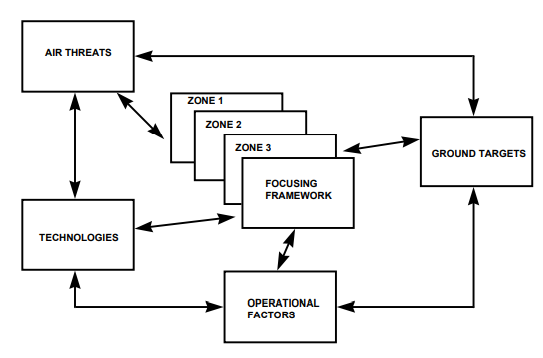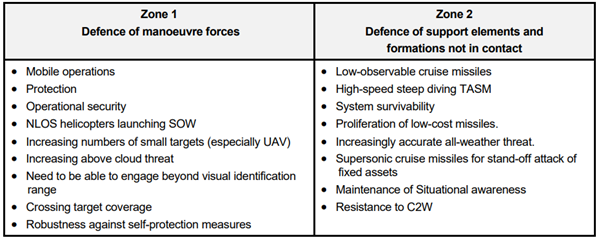New Concept
However, some of these combinations may be mutually exclusive, or at best highly unlikely. To help maintain a balanced view of all the factors, a focusing framework has been developed with the main factors illustrated in Figure 2-4.

Fig. 2-4 Zone concept as a focusing framework
The resultant “Zone concept” is based upon the principle that the air threat to ground-based forces will tend to be a function of the nature of the ground-based asset itself, which will, inter alia, depend on its function and importance, its location on the battlefield, the time or stage of the battle, and perhaps most importantly, the ease of targeting - which includes consideration of its “visibility” to electronic and visual systems, its mobility and the “five S’s”s (size, shadow, shape, shine, silhouette).
Other factors include the value and level of protection of the target. The former will depend upon its inherent battlewinning performance, or political sensitivity, relative scarcity and the time/stage of the battle, whereas the latter will tend to depend on its mobility, “hardness”, size/layout and posture, location on the battlefield, terrain, and signature. Finally, the vulnerability, survivability, numbers, technological sophistication, level of training, culture etc. of the attacker must be taken into account.
